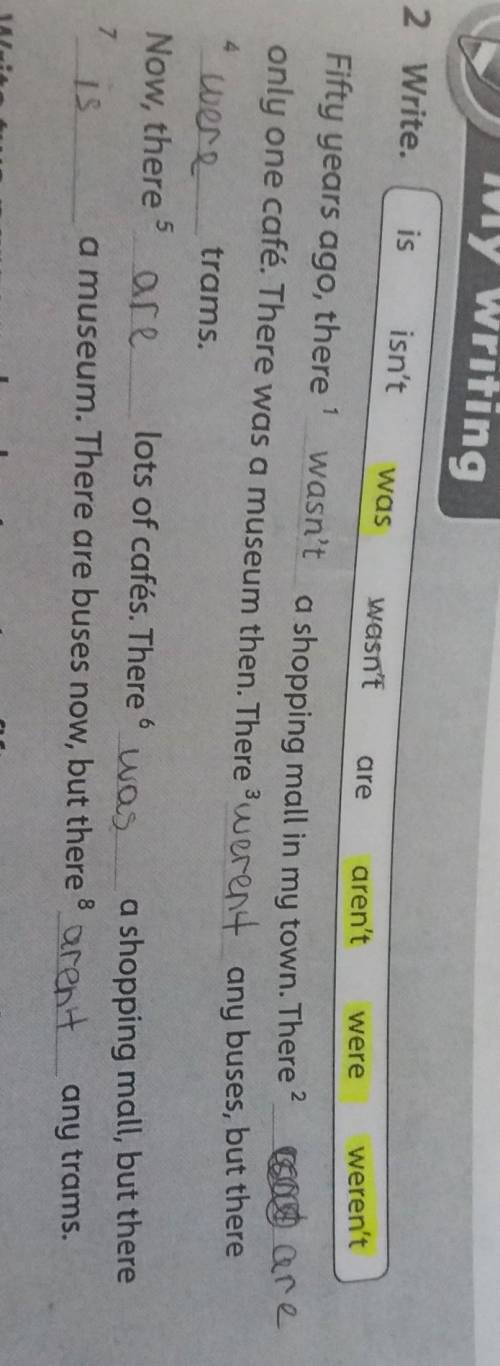
1. 1. We are swimming in the swimming pool.
2. She is watching TV now.
3. I and my sister are going to school now.
4. My father is washing his car at the moment.
5. They are playing the piano now.
2. On the armchair 1) The bank in High Street is big and modern.
On the chair 2) You can sit on this comfortable armchair when you watch TV.
In the street 3) The birds on the tree are not sparrows. What birds are they?
On the photo 4) We can often see roses on the piano in the living room.
3. 1) John and Sally like their house in Green Street.
2) I can see the Barkers, they are in their garden.
3) John! Can you help us please?
ответ:4.1)exciting
2)scared
3)interesting
4)tired
5)amusing
6)disappointed
Объяснение:когда описываем что-то классный фильм) , то окончание ing, а если сами чувствуем (я раздражен ), то окончание ed.
5.Если перед существительным нужно использовать несколько прилагательных (желательно не больше трех), то для того, чтобы они звучали естественно, они должны следовать определенному порядку:
1. Артикль или другой определитель (a, the, his)
2. Оценка, мнение (good, bad, terrible, nice)
3. Размер (large, little, tiny)
4. Возраст (new, young, old)
5. Форма (square, round)
6. Цвет (red, yellow, green)
7. Происхождение (French, lunar, American, eastern, Greek)
8. Материал (wooden, metal, cotton, paper)
9. Предназначение (sleeping)
1) a nice new Asian
2) a handsome middle-aged French
3) a lovely small wooden
4) a traditional old Greek
5) a beautiful long Italian
все норм